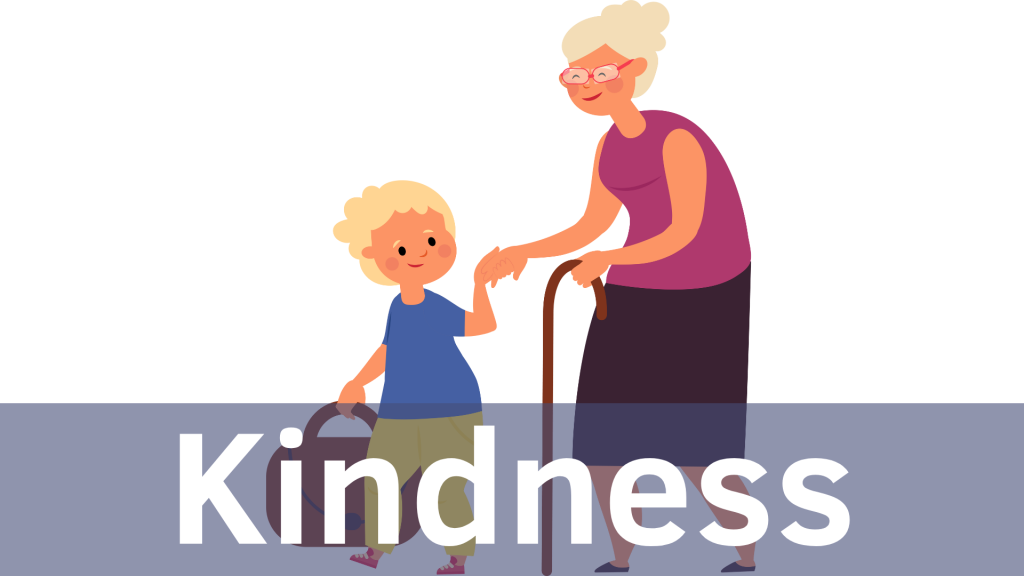Introduction
Kindness is a powerful virtue that has the potential to shape our society for the better. As parents, we have a unique opportunity to cultivate kindness in our children and contribute to a world filled with empathy, compassion, and generosity. By instilling the values of kindness from an early age, we can help our children develop strong interpersonal skills, build self-esteem, and establish meaningful connections with others. In this article, we will explore the importance of kindness, provide practical tips for fostering kindness in children, and discuss the long-term benefits of nurturing this essential virtue.
Understanding Kindness: A Foundation of Humanity
When we think about kindness, we envision acts of compassion, empathy, and consideration for others. Kindness is about “seeing with your heart” and acting out of a genuine concern for the well-being of those around us. It goes beyond self-interest and reflects the essence of being human. Instilling kindness in our children means nurturing their innate capacity for empathy and teaching them to take action based on that understanding.
Developing Kindness in Children
Help Them Understand What Kindness Means
Even before children can express kindness through their actions, we can start talking to them about empathy and compassion. From a young age, children have a natural inclination to feel what others feel, and we can nurture this innate ability. By labeling and articulating their emotions, we can help them understand and connect with the feelings of others. As they grow older, we can introduce concepts like the Golden Rule, teaching them to treat others as they would like to be treated themselves.
Inspire Their Imagination
Imagination plays a vital role in developing kindness. Encouraging pretend play allows children to step into someone else’s shoes and experience different perspectives. Through imaginative scenarios and stories, we can foster empathy and help them understand the impact of their actions on others. Reading books together provides an opportunity to explore emotions, learn about diverse experiences, and cultivate a sense of compassion.
Model Kindness Everywhere You Go
As parents, we are our children’s most influential role models. By modeling kindness in our own behavior, we set a powerful example for our children to follow. Small acts of kindness, such as showing gratitude, helping others in need, and treating people with respect, leave a lasting impression on our children. It is equally important to be kind to ourselves, as self-compassion sets the stage for nurturing kindness towards others.
Encourage Kind Habits
Concrete actions and habits help children translate the abstract concept of kindness into real-life practice. Encourage sharing, volunteering, giving, listening, and supporting others. Teach them the importance of inclusivity, compromise, and respect for differences. Engaging in small acts of kindness, or microkindnesses, on a daily basis helps children develop a habit of kindness and cultivates a positive atmosphere within the family and community.
Understand That Kindness Isn’t Always Easy
Kindness can be challenging, even for adults. It is important to remind ourselves and our children that kindness may not always come naturally or easily. Encourage children to acknowledge and take responsibility for their mistakes, as apologizing is an essential form of kindness. Through gentle coaching, we can help them navigate difficult situations and develop resilience in their kindness journey.
Pay Attention to the Effects of Kindness
Help children recognize the impact of their kind actions. Encourage them to notice how it feels to be kind and how others respond to their acts of kindness. By highlighting these positive experiences, we reinforce the intrinsic rewards of kindness and foster gratitude within our children. Kindness and gratitude intertwine to create a foundation for their overall happiness and well-being.
The Benefits of Nurturing Kindness
Teaching children to be kind yields numerous long-term benefits. By developing empathy and understanding, children become more skilled at building meaningful relationships and resolving conflicts peacefully. Kindness also fosters a sense of belonging and acceptance, reducing feelings of isolation and promoting social integration. Children who practice kindness are more likely to experience higher levels of self-esteem, as acts of kindness contribute to a positive self-perception and a sense of purpose.
Conclusion
As parents, we have a profound influence on shaping our children’s character and values. By prioritizing kindness in our homes, we create a culture that extends beyond our family and into society. Nurturing kindness in our children requires intentional efforts, such as helping them understand the concept, inspiring their imagination, modeling kind behavior, and encouraging daily acts of kindness. By instilling this fundamental virtue, we equip our children with essential interpersonal skills, empathy, and compassion, enabling them to make a positive impact on the world and live a fulfilling life. In our collective pursuit of a better future, let us raise a generation of kind-hearted individuals who will continue the ripple effect of kindness for years to come.




